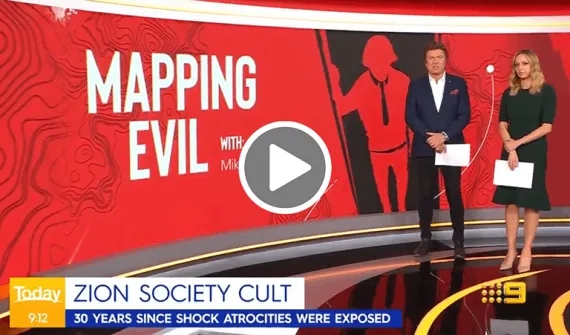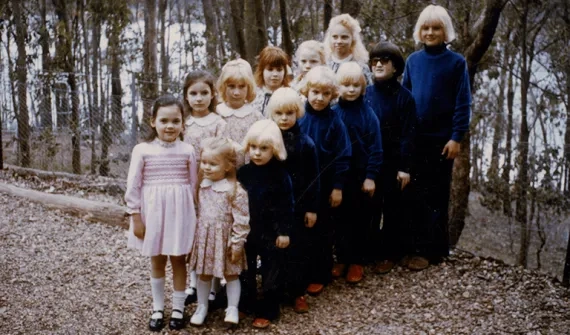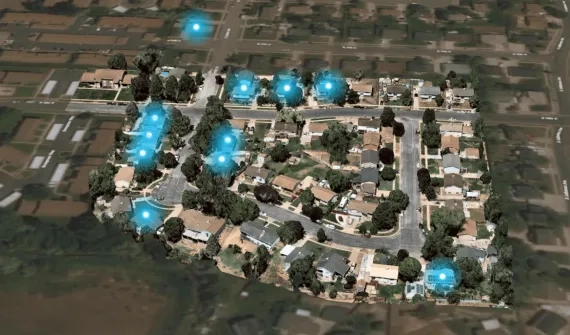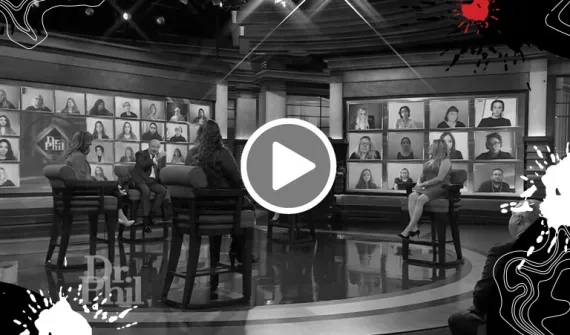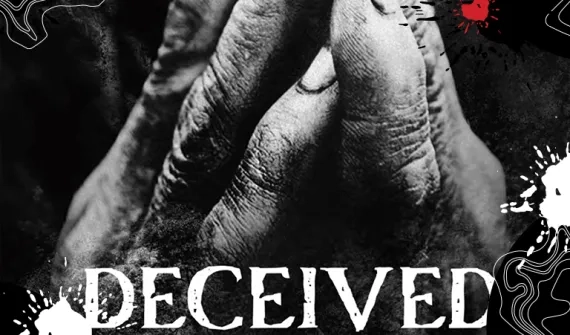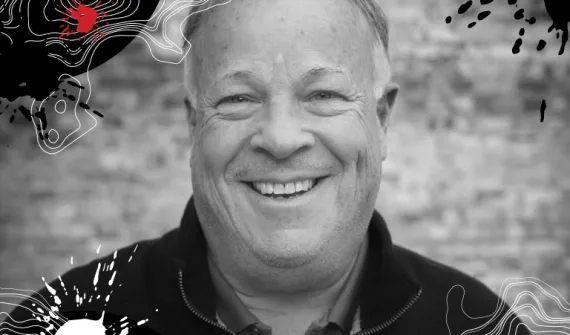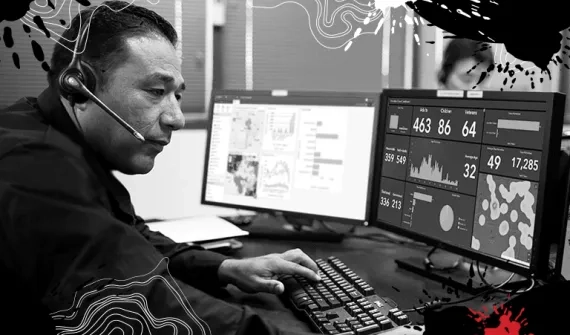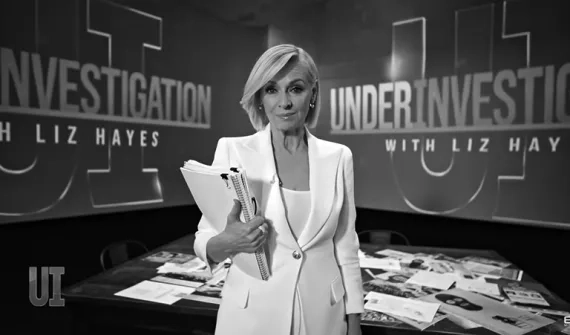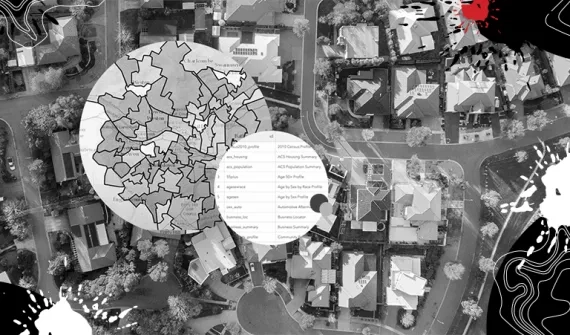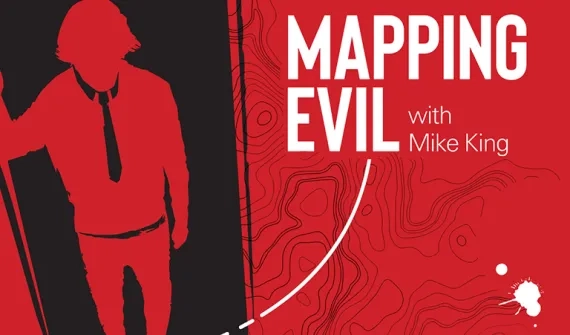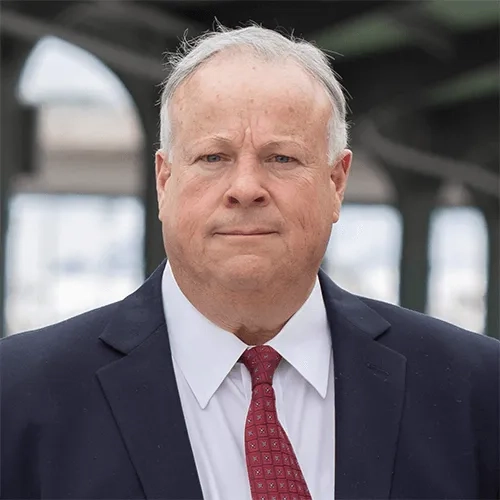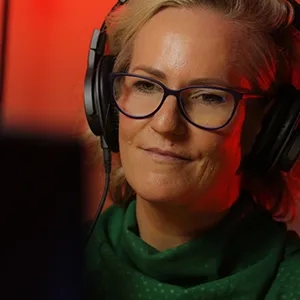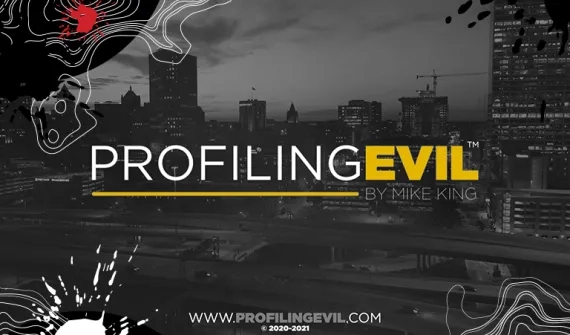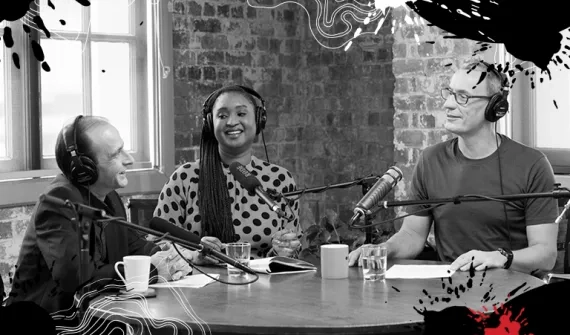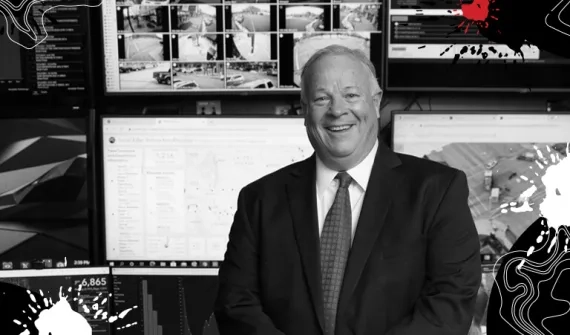Taking down the Zion Society
“I've been involved in a cult that's sexually abusing children. Do you have a moment to talk to me?”
These were the words that turned what was otherwise a normal day for Mike King into the most pivotal moment of his law enforcement career. What soon followed was a coordinated response of a magnitude rarely seen in US law enforcement. One that would eventually bring Arvin Shreeve – the self-anointed leader of polygamist doomsday cult the Zion Society – to justice.
Join Mike King and Tory Shepherd as they take a close look at how the small community of Ogden became the perfect breeding ground for one of America’s fastest growing and most sadistic cults. Hear Mike’s first-hand account of how he and his fellow investigators used cutting-edge technology to map the cult’s complex operation. Learn more about how the same technology unearthed the true scale of the cult and the location of its hunting grounds.
Mike and Tory also delve deep into the cunning tactics used to recruit new sect members and the frightening similarities between the Zion Society and other notorious cults, including NXIVM – with its Hollywood links – and Australia’s own The Family.
The geography of cults
Explore crime mapping tech
Never miss an episode of Mapping Evil – subscribe now.
About the hosts

If you have information about any unsolved crime or suspicious activity, then you can share what you know with Crime Stoppers, without saying who you are or getting involved. Call 1800 333 000 or go to crimestoppers.com.au.
- Click to view The Cartography of Cults episode transcript
Tory Shepherd: The following podcast contains content of a highly graphic nature. Listener discretion is advised. The material covered is based on firsthand accounts and publicly available information. In producing this podcast, every effort has been made to show respect to the victims and their families.
Support for this episode comes from the country's leading mapping technology and services provider – Esri Australia. To learn more about how Esri tech is making a difference in crime analysis and public safety, visit esriaustralia.com.au/crime.
Mike King: “I've been involved in a cult that's sexually abusing children. Do you have a moment to talk to me?” What we discovered was literally thousands of counts of sexual assault had been occurring.
Tory Shepherd: I'm Tory Shepherd, and this is Mapping Evil with Mike King.
Mike King: He looked for divorced women who had families, were struggling financially and he offered them security and all they had to do is be sexually active with him and do what he told them.
Tory Shepherd: The podcast where we look at how geography and mapping predators and victims can help solve and predict crimes.
Mike King: That's the beauty of GIS – it starts to paint these pictures and starts to create link analysis charts that show us one individual is reaching out to 10 and those 10 are reaching out to four others.
And most importantly, it also helps us ask more questions.
Tory Shepherd: And even help people avoid becoming victims.
Mike King: One of our victims said to me…
Anonymous voice: I didn't go to this place to join a cult and become a criminal. I came here to flee an abusive marriage.
Tory Shepherd: Episode two: The cartography of cults.
Today, we're going to talk about cults. The profiles of those who lead them, the victimology of people who follow them, and how geography can help us understand how these groups are established and why they can operate for years on end. I'm here with Mike King. Mike was trained by FBI profilers and has become one of the world's best cold case investigators.
Mike, we know in your career, you've handled some pretty horrific cases, but this one was different, because there was a polygamous doomsday cult that was abusing children in your hometown. Mike, can you tell us how you got involved in the take-down of the Zion Society?
Mike King: I actually walked into the office after lunch on a particular day.
And there was a woman sitting in a chair in the waiting area and the receptionist grabbed me and said “Hey, could you please talk to this woman? She's been waiting for some time and I just don't have anyone available.” So, I was kind of the last person they would want talking to her. And I walked over and introduced myself.
And the first words out of her mouth were, "I've been involved in a cult that’s sexually abusing children. Do you have a moment to talk to me?" And, as you might guess, I tried to act like that was something I hear every day Tory, but it absolutely was not. And it launched me into one of the most incredible emotional rollercoaster investigations I've ever investigated.
Tory Shepherd: What a sliding doors moment and how fortunate for everyone that you were the guy just walking in after lunch, because you busted this cult. But let's give our listeners a taste of what was going on in this cult. Who were they? What did they believe?
Mike King: You know, it was an interesting one, a little bit different than many. Most will have a command structure or a controlling structure.
If you think about organised religion – it is kind of built to look outward at how do we help the community and the parishioners and others. Cults are very much the opposite. It's all about how do we build up the leader? How do we make their life better? How do we adore them? And this cult was no different.
What we've seen is many of these closed societies will organise off the beaten path – somewhere out in the woods or a place where they can be free from people being able to see what's going on.
Tory Shepherd: That's what people always picture, right? They picture the compound.
Mike King: That's right. This was so different, Tory, because they put it right under our noses in a community and they found a closed-off community. There was only one way in to the community and one way out, and it was surrounded by open fields and areas where you couldn't surveil the place. They built this thing right under our noses and it started to grow rapidly over about a four to five-year period.
Tory Shepherd: And there's this amazing map that you showed me, which you can see again on the Mapping Evil website, where it shows how they're almost colonising a suburb. Which city is this in? Where are they creating their network?
Mike King: This is in the United States, in the Rocky Mountains, in the state of Utah.
It's the northern part of Utah, in a city called Ogden. The thing that was so intriguing is this was a community that was founded by the early Latter-day Saints – the Mormon pioneers. If that history ever came across… They were some of the first people that actually settled the Salt Lake Valley and created Salt Lake City and led to the creation of the state of Utah.
It was a highly religious group of people. But soon, the city took in the first transcontinental railroad and actually, is the location where both the East and the West railroads came together. They call it the ‘golden spike’. The city was the centre point of that golden spike – which then started bringing in brothels and all kinds of things.
So, you had these two polar-opposite communities that were all functioning in the same area. You had a highly religious place that was flinging open church doors on Sundays. And you had these seedy bars and opium pits and everything else that were going on in the lower parts of the city.
Tory Shepherd: But there were these links between the two, right? Between the seedy and the righteous cult? Because this is part of how you got to start mapping them – they started doing business with the brothels?
Mike King: That's right. Well, they actually started leaning on the fact that this group used landscaping as a way to build a business and to make money for the group.
They started having business inside of the city and around the city. As they started to crop up, we used GIS or mapping – back then it was much more rudimentary than it is today – but we used that to start identifying which houses were being used and which houses were being purchased.
That is how they grew, kind of like a cancerous group. We were able to map as each home came up for sale – they would quickly gobble it up and pay whatever price someone wanted to sell it for, just so they could claim it as part of the compound that they were building.
It became really important to understand where people were coming from and who was joining the group. Where the people were that were inside the group, who neighbours were that were not affiliates of the group. All of that became important in trying to understand how to best infiltrate and take down the group.
Tory Shepherd: And again, the map is really great at showing how this all works together. You have the web of the cult and then you have the spider in the middle – who is the cult leader. Can you tell us a bit about Shreeve?
Mike King: At the time we served the arrest on him, he was a 61-year-old landscaper. He was kind of a dumpy looking guy, and yet he expected all of the women and people within his group to be always at their very best, dressed to the ‘T’ in makeup – always looking good.
They actually forced them to weigh-in every single day to hit a weight limit.
Tory Shepherd: What, step on the scales to make sure that they're not getting...
Mike King: Exactly.
Tory Shepherd: Uh.
Mike King: Every single day they would be weighed and someone would say, “you're not going to be eating any longer” – but they had to be an optimal weight.
All of this was to fit this fantasy that he had created in his mind of what this utopian society should look like. These seemingly intelligent people bought off on this kind of philosophy.
Tory Shepherd: One of the things that often happens with cults is that they have something to hold over, like the world is going to end and you will only be saved if you do what I say.
Was there a doomsday aspect?
Mike King: Yes, they were very much doomsdayers or end of world. We call them ‘constitutionalists’ at times because they fight against the constitution or they fight in favour of the constitution. This group was very much the same. They were stockpiling weapons, they were stockpiling medicine and prescription drugs, and they were stockpiling food.
All were ghost stories that we were hearing about or rumours that were coming into the police department, but we could never substantiate them because we didn't have any reason to go in and really get inside the homes and validate that. All of the activity they would conduct would be after hours.
At night, this place would come alive with people pulling up in vehicles and unloading supplies. I remember one particular resident talking about how he would sit out on his porch on a hot summer's evening and hear the women walking and listening to their high heels clicking on the sidewalk as they carried all of these provisions from house to house, it was just absolutely insane what they were doing.
Tory Shepherd: Oh, that's so eerie. One of the other things I want to quickly touch on – because we're going to dive even deeper into how cults operate a little bit later – with the Zion Society you got in there, you bust it up, but one of the other interesting things you did is you tracked where the leaders went after that. You know you can deradicalise people from cults and you can rescue the survivors and give them help. But quite often, the leaders, the people who saw how the power structure works, they set up elsewhere. Is that right? And you could see where they've gone to start again.
Mike King: That's exactly what happened. In this case, by the time we served the search warrants – our goal was to take 32 children into protective custody – we discovered that literally thousands of counts of sexual assault and rape of children had been occurring. Once the arrests were made and we went through the criminal justice system where 12 people went to prison, including the self-proclaimed prophet.
As they started to get out of prison, they started to go off into other areas and I tried to watch them throughout my career and follow them. It was quite disappointing to see how some of them would go and join other fundamentalist groups. Doomsday kinds of groups. It was almost just a sad stark reminder that we didn't really change a lot. We protected some children for that period of time, but there are some personality types that just want to be controlled. So they went and looked for another place where they could be controlled.
Tory Shepherd: That is so sad. Just quickly, I could see how emotional you were. You've gone on the Dr. Phil show and some of the survivors of this cult were on stage talking about their experiences and they seem like really strong women. How was that for you to actually just see them? They've come out the other side, they can now talk about it. I mean, I saw a tear in your eye.
Mike King: Oh yeah. I got really emotional and just to see them was incredible. And of course we're in the middle of COVID – so not being able to go over and greet them, that was really difficult. But it was so amazing to see, as I looked into their faces – and again, these are 45-year-old women now – I could still see those 12, 13, 14-year-old children's faces.
I had one special one – Andrea – who the moment I saw her, I reflected back on watching her be loaded into a family services van on the morning of that raid, where we used 70 police officers to hit all of these homes at once in order to take down this cult.
I remember just being locked eye-to-eye with this child, as she was driving away in this social services van to be interrogated and interviewed for weeks. It came back with such a rush of emotion. It was really quite an experience for me.
Tory Shepherd: It was an extraordinary episode. Mike, we're going to get back to the Zion Society and hear a lot more about them.
But for now – I think this is going to be really interesting for our Australian listeners – because we're going to talk about probably the most well-known cult in Australia and they were called ‘The Family’.
I think a lot of people will have seen the photos at the time from The Family because Anne Hamilton-Byrne tried to make all these kids – that she kind of stole through scam adoptions from unwed mothers and that sort of thing – and tried to make them all look the same.
A lot of people will remember pictures of all these kids with a bobbed bleached haircut. It's spooky. She's trying to make them all look the same. They look like brothers and sisters because she was pretending that they were all her kids.
Now you've been reading up a little bit on The Family. Do you want to give us a bit of the backstory?
Mike King: I was so fascinated. And again, with my earlier statement – different as these groups like to think they are, they are so similar in nature. I actually even reached out to the lead investigator in the case of The Family who lives just outside of Melbourne, in fact. We spent quite a bit of time talking about the similarities between the two cases.
Anne had started creating this utopian society that in her mind made sense. The thing that was so strange about her is she came from, if I remember right, a father and a family where he worked in the railroad industry or something – he was just a ‘regular Joe’ – but she didn't want to have that kind of appearance in public. So she led people on to believe that she was almost like monarchy.
Tory Shepherd: A real social climber, I think we'd call her.
Mike King: Yes and there were pictures of her with prime ministers, and other kinds of important people that she would find her way into. She created this environment where people believed that she was a saviour of sorts and that they – by following her – would be guaranteed to be this most powerful, intelligent, worthy race that would be ushered into the eternities.
Tory Shepherd: She was pretty clever, right? In one instance, she slept with somebody’s gardener to get some gossip out of them so she could go to the owner of the property and it seemed like she had these psychic abilities. And then blending all this strange kind of Eastern mysticism and things that a lot of more mainstream people might believe in, but tying it into her own strange fantasies where she was the charismatic head.
Mike King: When she really got rolling, the theatrics really turned out. Talking to the lead investigator, he shared with me how she would get physicians to induce people with LSD. When they were in this heightened state of being under the influence of narcotics, she would suddenly appear in a doorway in a big white flowing gown with lights on behind her and she would have steam coming up behind her from dry ice.
Tory Shepherd: Dry ice, like the disco stuff.
Mike King: People would swear to the day they died that they had seen this risen being, this heavenly deity and she got away with it.
Tory Shepherd: She got away with it for a long time. I think there was ultimately 28 kids that went through that property out on Lake Eildon and a lot of adults as well.
Even the people who didn't end up in her compound – which we're going to talk about in a second – would still kind of pay obeisance to her and worship her. Everybody wrote about how sexually attractive she was. She had some kind of magnetic hold on all these people.
Let's talk about – unlike with the Zion Society – they had to build up their own isolated community within another community. What Hamilton-Byrne did is maybe a bit more normal for cults, which was “Let us find a place that is just a little bit out of the way, where we can live this strange communal life.” What do we know about where these kids ended up?
Mike King: Well, we know that in Lake Eildon she put together this little compound where she had really nice control. What it appears happened – where she failed – was the children still had opportunity to have some interaction in the community. Several of the children were in the community one day when one member of the cult – one of the children – started a fire at a school. That's what led investigators to start really understanding and looking into who these people were.
That led this investigator, Lex De Man, into forming a task force – Operation Forest I believe he called it – and initially creating something that only was authorised to operate for 12 weeks. It ultimately took four years of his life until he finally got that conviction.
Tory Shepherd: But there weren't many convictions were there? Did Lex De Man talk about that at all? Obviously you can prosecute clear cases of child abuse, but there's a lot about a cult that would be hard to pin down for an investigator in terms of getting a conviction.
Mike King: I think Australia was facing the same challenge that we were facing in the United States – and frankly, in many places in the world. Back in the seventies, eighties and nineties, we were still figuring out – and maybe are still figuring out – how to best interview children, how to best interview people who are victimised in cults, how to decompress what they've had years of training to believe in, so we can build solid criminal cases. They become incredibly complex.
Tory Shepherd: But the thing about these cults is, as soon as we start talking about them, I think about today's cults. You know, just recently we saw an arrest in the NXIVM cult, which involved a lot of Hollywood stars.
A lot of people calling QAnon – this kind of strange conspiracy theory. In Australia, they believe that thousands of children are being trafficked as sex slaves under the cities. Anyway, people look up QAnon and you’ll go down a rabbit hole and you'll be very, very frightened. And remember, that none of it is true.
Let's talk a bit more broadly. Let's just widen this right out. You think that this can't happen that often, right? How many people can be believing this stuff? What's the cult ‘lay of the land’?
Mike King: As I've talked to experts in Australia – some even suggest that it could be hundreds of cults in Australia – and of course what fits a cult becomes definitional. Some of those may only have a few members. Some may have a huge number of people – like The Family – with an estimated 500 people at the time those things came to a close.
Tory Shepherd: It's mind-boggling. For another show, I would love to talk about how you would teach your children not to believe in these kind of wild things but we're in a strange time where people believe all sorts of interesting things.
So we're talking about cults, but it's not really that clear what they are. It feels like sometimes people might call something a cult, just because it's a thing they don't believe in. But there are very specific ways that we can recognise what a cult is, right?
Mike King: Well, sometimes it is difficult. I mean, some people would say that multilevel marketing plans are cults in the way they do things. Believing in a certain sports team – some people could say that is cultish behaviour.
What I like to do is go back to what some of the experts say. If we look at it from a religious perspective, organised religion is focused outward on how do we improve the life of the parishioner and how do we get closer to this elevated being – whatever it is that we believe in based on our faith tradition. The difference between those people and a cult, is the cult is centered on the leader. They are the most important, they are the one that all of our funds and all of our efforts and all of our attention goes to. It's a very “all about me” kind of attitude when you start talking about cults.
And I think that's just a really nice way of looking at the difference between a legitimate organised group and someone that's a cult.
Tory Shepherd: And then we're back to the spider at the centre of the web aren't we? I mean, people often talk about the charisma of cult leaders. We talked about how Hamilton-Byrne was sexually attractive but that's not necessary – it just has to be someone with that magnetic power to bring people in. And so again, I was thinking about Q – who is the spider at the centre of the QAnon web – and there are some similarities. We don't know who this person is but they pretend – like Hamilton-Byrne – to have all these powers and all these insights and ability to make prophecies.
So can you tell us a bit more about Shreeve – why were people drawn to him?
Mike King: Well first, he claimed that he had a special position near God. He was a number two or a number three person in God's hierarchy. Before he came to Earth, he had the special responsibility to assemble only the smartest of people into this group. As he reached out, he appealed to their senses, their need.
We think about Maslow's hierarchy of needs – you can't reach self-actualisation until you've satisfied those things below that. These cult leaders are so good at taking care of things like belonging and self-worth and love, or taking care of physiological kinds of needs. It's so important that we look at what are they using to appeal to people and give them something that they weren't getting somewhere else.
It's that sense of belonging or that sense of need or taking care. In the case of Shreeve, he looked for divorced women who had families and were struggling financially. He offered them security and a place to live in a beautiful environment. All they had to do is be sexually active with him – and with children – and do what he told them. Before long, he convinced a huge number – over a hundred people – to participate in that kind of activity.
Tory Shepherd: We think of cults as being like isolated, but they're not, they're always interacting aren't they. They have to get supplies. They have to have some interaction with authorities. With the GIS that you didn't have when you busted the Zion Society, how would you do it today? How would you start to work out where the centre of this cult is?
Mike King: Yeah, the beauty today is we can start looking at things like socialised intelligence. We can look at the way in which they're using the internet, the way they're sharing information, how they're proselytising their belief system out, and looking for and growing their group. Then we have to look at the people who are joining – and so we can use GIS in a number of ways.
We can start to look at geographically and globally where that proselytising effort is reaching out to and how it's being responded to. Then we start looking at the kinds of people that are joining – where are they coming from? What is their background? Are there ethnicity issues? Are there economic issues?
As we start to look at that, we can start thinking about areas in which they might recruit people. For instance, Shreeve was smart enough to know that he was going to go to places where women would be working hourly wage jobs and have to be a mature adult. Sometimes it was working in a bar, other times it was a daycare operator – but they knew, and they profiled the kind of victim that they were looking for.
Using geography we can do the same thing. We can look at economic boundaries and geographically examine things like cultural areas in a community, and use those to help build up this group of people who we want to follow us. Basically use that old term that my grandpa used to tell me – “go fishing where the fish are”.
Tory Shepherd: That is a great phrase. What are you doing is you're getting all this data together and then seeing where the patterns lie. With the internet, and even the dark web and Facebook groups and all these sorts of things, is it possible to start to map out how these cults work online?
Mike King: Well I think you can start to follow the money.
You may not be able to do that geographically initially but as you start to link together all of those relationships… You know, years ago, we used to just say “show me a dot on the map” – because everything's a dot on the map. The secret of GIS is to say, why this particular dot? This particular dot may be single women with children who were in a financial situation that fits this recruitable group of people that we're looking for.
Now, let's look at areas in which I'm going to find those people. We start saying, why is this dot important to these other dots? And that's the beauty of GIS – it starts to paint these pictures. It starts to create link analysis charts that show us that one individual's reaching out to ten and those ten are reaching out to four others. It really helps paint a picture, and most importantly, it also helps us ask more questions.
Tory Shepherd: That brought to mind some of those really great data visualisations that I've seen you're involved in as well. You can do such amazing mapping now where you just see that kind of emerge from the mass of data.
Let's talk about NXVIM. I always feel like I'm not sure if I'm saying that right, because it's spelled NXIVM but pronounced ‘Nexium’, right?
Mike King: That is correct. Yes.
Tory Shepherd: This has been headlines so recently. Did it follow what we've talked about with these classic cult structures, was NXVIM similar?
Mike King: Absolutely. In fact, the leader of NXVIM, Raniere, actually started in multilevel marketing plans and he actually tried to do some legitimate businesses where he ran multilevel programs. What he learned in that process he started to apply with this self-improvement, self-help kind of seminar stuff. He really appealed to people by telling them how great they can be and how great they already are – and people started to come in. Once he started getting the momentum, that's when he started to really pervert his belief system and start to think that he was in a position to do more than he was doing.
Ultimately what we see in the court case – in which he was convicted and sentenced to 120 years – was he perverted that to the point that he was creating relationships where he was having sexual relations with members. Consenting adults can do what consenting adults want to do, but he then started branding them.
So there were human rights violations, there were money laundering violations. There were a number of things that led to his overall conviction.
Tory Shepherd: And the branding was an actual branding. Wasn't it like you do to cattle?
Mike King: Yeah. And it wasn't like you would see on cattle. It was more of a tool that burned as they drew. They would actually put his initials and the initials of one of his chief assistants in the groin area of these female victims to brand them as property of his.
Tory Shepherd: Yikes. Now, when I saw those NXVIM victims, you feel immense sympathy and empathy for them. But at the same time, there's this part of my brain that goes “that would never happen to me.” I'm deluded aren't I? It's not people with psychological issues that get sucked into this but it can be people with certain vulnerabilities.
Mike King: NXVIM's a great example. I mean, these were Hollywood stars that were involved in this group that were high profile, very successful people.
I spoke with Frank Parlato – he's the investigative journalist and former member of the group who actually is credited with bringing it down. As Frank and I talked about the similarities between NXVIM and the Zion Society and The Family, what we really realized was that the victimology in those groups was very similar, not the age of people or other things, but the mentality of people.
More importantly – as you and I have looked at with The Family in your country – those same characteristics existed in that case. I keep going back to this – as different as they would like to believe they are, they are so much the same.
Tory Shepherd: Yeah, so vulnerable people who are offered well, like a snake oil solution to their problems.
How do you start to protect people from cults? Can you protect, for example, the vulnerable women – whether it's divorced single women struggling in a precarious job, or how would you help your children? How do you teach people not to be susceptible to cults?
Mike King: First and foremost, transparency is the most important thing. If there's a secrecy component, that should be the first red flag. When I look at cults, one of the first things I try to do is understand the ‘pyramid of power’. Who is the person that ultimately is the one everyone looks to? And is that someone who's demanding all of the focus is on them and their greatness and building up how amazing they are? Or are they really the kind of person who's saying, let's build out and let's look out and there's someone greater than me.
So first and foremost, that power pyramid. Then I think it's important to start thinking about the method of recruitment that they use, how are they going out and finding members? They're always going to start out very softly in their approach. People would never fall for this stuff if they knew what the end game was really going to be.
A great example from the Zion Society was a young couple. The husband later became a police office and I was his training officer, he said that he moved into the...
Tory Shepherd: Sorry, you were the training officer of the guy?
Mike King: Yes, for a young police officer who ended up in the Zion Society neighbourhood. He said immediately, they were surrounded by loving, warm people who were bringing food over to them and welcoming them to the neighbourhood. They came over and offered to finish his yard. He said “man, I'm not going to turn down all of this help”. And before he knew it, they were finishing his basement and then they slowly started to say “hey, we could put food storage in your house, if you don't mind sharing it with all of us? We just have more than we can store. So if you let us put it in your home, we'll let you have it too, if we ever get to a point where we need to have food storage”.
And then the next step was, “hey, if we ever had a woman who was having a troubled marriage and needed a place to stay for a day or two, if we finished a bedroom in this house for you could we use that from time to time?” Well, he kept looking at all this as free stuff and he slowly was acclimated.
Before long they were teaching him their sexual way of life doctrine. And he and his wife were scratching their heads and they were both looking at each other. He was thinking my wife is buying off on this. She was thinking my husband's buying off. Neither of them had the courage to challenge the other one in their thinking.
Finally, thankfully, they said “wait a minute, there's something weird here” and they moved away and got free of the group. But these were smart people who were slowly acclimated to the system. It's so important that we understand what those mechanisms are, how they gain control of the members. Once they gain control of them, what do they do to manage and maintain the security of them and the oversight of them? Those are the things that we should be teaching more often I think.
Tory Shepherd: And look, I said that – I thought I would never be susceptible to a cult – but now I'm thinking about good food and how susceptible I am to good food. Maybe that would be their in with me, for sure.
Mike King: You know, one of our victims said to me “I didn't go to this place to join a cult and become a criminal. I came here to flee an abusive marriage.” We have to also realise that these cult leaders are so good at figuring out on that Maslow hierarchy of needs, where someone is. Because where you and I might be thinking at a self-actualisation level, somebody who doesn't have food in their belly or a safe place for their children has a much different level of vulnerability than maybe we have today.
Tory Shepherd: Mike, have you got any advice for what parents should say to children to try and build up their mental resilience to people who would suck them in in this way?
Mike King: Yes. Question everything. We teach our children to “do this because I said so”. We need to teach our children to question everything. Now there's a time to be obedient and a time to do what you're told to do but we have to teach our children to be independent thinkers.
Tory Shepherd: I think that's true for everyone. I always liked the phrase “always keep an open mind, but not so open that your brains fall out”.
Mike King: I like that!
Tory Shepherd: Mike, we're just about out of time, but I want to kind of wrap up with something from your book. Why don't you give us like, just a little snapshot of how your book begins.
Mike King: The book begins with a statement that says, "some stories should never be told. Others, regardless of how painful they are, must be told". And this particular book doesn't go into the seedy side of the assaults that occurred, but it does celebrate the victims who rose above it. I hope that as people jump into it, they will see that even those who are victimised in the most horrendous levels can beat their offenders by raising above it. That would be my ultimate goal in the book.
Tory Shepherd: Oh, Mike. I think that is a beautiful note to end on. I know we always go into these dark places but you always seem to bring your own ray of light.
Mike, thank you so much. This has been another episode of Mapping Evil with Mike King. All those extras are there for you at mappingevil.com.au.
Big thanks to today's sponsor Esri Australia who do mapping solutions to help public agencies across the country, your country, and my country. They predict and fight crime, help track the criminals and keep us safe. And now could help us keep an eye on some of those doomsday cults.
You can get a free trial of the software again at that website mappingevil.com.au – where you can see Mike shed had a quiet tear on Dr. Phil, but also see those survivors that he's just spoken so passionately about.
Mike King: Thank you so much. I can't wait to hear what we get to talk about next.
Tory Shepherd: If you found the content covered in this podcast distressing, support is available from Lifeline on 13 11 14. And, if you have information about any unsolved crime, please contact Crime Stoppers on 1800 333 000 or go to crimestoppers.com.au.
This is a Boustead Geospatial Technologies production. This episode was narrated by me, Tory Shepherd and Mike King. Sound engineering by Fig Media with editing support from Kim Douglas, Gabi Paterson, Circa3 and Podbooth studios. Artwork by Superscript and our executive producers are Raquel Jackson and Alicia Kouparitsas.
And finally, this production would not be possible without the support of Esri Australia.





 VIEW TRANSCRIPT
VIEW TRANSCRIPT